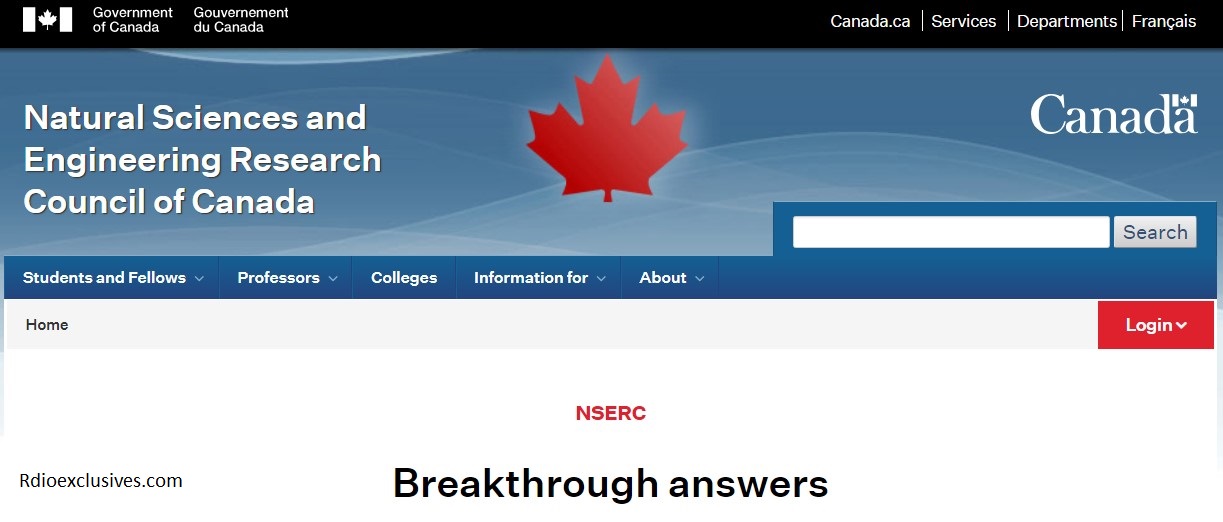Nserc Scholarship Introduction
The Natural Sciences and Engineering Research Council (NSERC) of Canada offers a range of scholarships and fellowships to support research across science and engineering disciplines, excluding health sciences. These funding opportunities aim to promote excellence in research and equip students and researchers with the resources to carry out innovative projects.
Overview Of NSERC Scholarships
NSERC scholarships and fellowships provide financial assistance for researchers and students at all academic levels conducting research in the natural sciences or engineering. The NSERC scholarships are highly competitive and candidates should craft strong proposals, secure reference letters, and meet all deadlines when applying.
Undergraduate Student Research Awards (USRA)
USRAs provide undergraduate students with hands-on research experience over a 16-week period. Students receive a minimum salary set by NSERC while carrying out research under the supervision of an experienced researcher.
Alexander Graham Bell Canada Graduate Scholarships (CGS)
CGS scholarships recognize academic excellence for master’s and doctoral students conducting research at Canadian universities. They provide $17,500 (master’s) and $35,000 (PhD) per year for up to 4 years.
How To Apply Nserc Scholarship
Step 1: Choose the right NSERC scholarship program for you. Read through the descriptions carefully while considering your education level, field of study, and research plans. Some major programs are NSERC PGS D for doctoral students, NSERC PGS M for masters students, and NSERC PDF for postdoctoral fellows.
Step 2: Contact your university’s NSERC liaison officer. They support students through the application process and can clarify institutional policies and internal deadlines. Inform them of your intent to apply.
Step 3: Thoroughly read your selected program guide and instructions while crafting your application. Pay close attention to all requirements, eligibility criteria, evaluation criteria, deadlines, and instructions.
Step 4: Prepare the required documents: transcripts, reference letters, detailed research proposal, CV summarizing academic and research contributions, justification for nomination (if applicable), and potentially other supplements.
Step 5: Write your research proposal clearly highlighting the importance, objectives, methodology, expected outcomes, feasibility, and alignment with evaluation criteria. Refine through multiple drafts.
Step 6: Submit your complete application package before the deadline and inform your NSERC liaison officer. Include all required documents following the exact instructions.
Let me know if you need any clarification or have additional questions on a specific aspect of the application process as you prepare your submission. I’m glad to provide more guidance or explain things further at each step.
Demonstrate Your Motivation
Convey genuine excitement for your research and showcase unique experiences like conferences, paper presentations and field visits that have enriched your perspective.
Focus on Knowledge Translation
Increasingly, NSERC is emphasizing knowledge translation and collaboration with industry partners. Cater proposals accordingly.
Highlight Diversity Initiatives
Reflect commitments to furthering equitable, diverse and inclusive research practices in your application.
The NSERC scholarship offers immense support during critical junctures in a researcher’s academic journey. While highly competitive, keeping these best practices in mind while planning applications early can greatly strengthen your prospects. Reach out to campus scholarship offices for further assistance.
Conclusion
NSERC scholarship represents one of the most prestigious and competitive awards that Canadian students in the natural sciences and engineering can receive. With thorough preparation, planning, attention to detail, and a compelling presentation of one’s promising research ideas and potential, students can put their best foot forward in applying for this career-accelerating opportunity. Key aspects adjudicators look for include research excellence, strong communication abilities, academic achievements, leadership skills, knowledge translation, and diversity/inclusion initiatives. By assessing award categories, building applications well in advance of deadlines, obtaining strong references, clearly conveying motivation, and implementing best practices, applicants can assemble the strongest possible overall profile. The NSERC scholarship has supported generations of Canadian research leaders – with diligence and creativity, driven students can aim to join their ranks.

